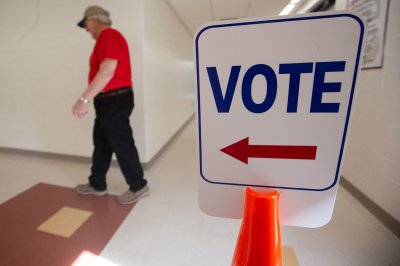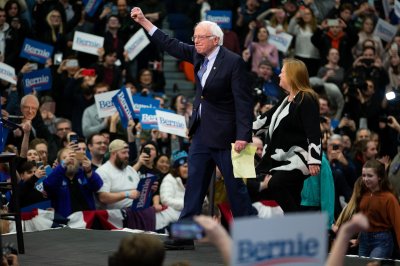Topic: Deval Patrick
Quotes
We've got a moment in history right within our grasp to remake our present and our future ... to rebuild the sense of community, the connection that I have talked about and you have talked about and felt for so long
Biden says U.S. building economic platform Jun 24, 2009
Our success depends on the stability and reliability of the commitments the federal government has made to us. Any retreat in those commitments could have devastating effects on our progress
Economy dampens state healthcare plans Mar 17, 2008
I'd caution everybody to remember who is and who is not the candidate
Patrick: Superdelegates will back winner Mar 16, 2008
I understand that the federal government has a job to do in enforcing immigration laws and there was a practical reason for them doing it the way they did it
Judge: Mass. detainees should stay there Mar 10, 2007
As I said to (Maguire's widow) when we spoke on the phone just a moment ago, none of this is going to bring Jack back ... but what we have done and what we must do is all we can to regain the public's confidence in a part of the criminal justice system which is vital to a successful criminal justice program
Mass. parole board sees shake-up Jan 13, 2011
Deval Laurdine Patrick (born July 31, 1956) is the 71st and current Governor of Massachusetts. A member of the Democratic Party, Patrick served as an Assistant United States Attorney General under President Bill Clinton. He is the state's first African American governor of Massachusetts and the second African American to be elected governor of any US state.
Born and raised by a single mother on the South Side of Chicago, Patrick won a scholarship to Milton Academy in Massachusetts in the eighth grade. He went on to attend Harvard College and Harvard Law School, where he was President of the Harvard Legal Aid Bureau. After graduating he practiced law with the NAACP Legal Defense and Educational Fund. He later joined a Boston law firm, where he was named a partner at the age of 34. In 1994, President Bill Clinton appointed Patrick Assistant Attorney General for the Civil Rights Division of the Department of Justice, where he worked on issues including racial profiling and police misconduct. Patrick returned to Boston in 1997 to work in private law. In the following years he worked as general counsel for Texaco in New York City and Coca-Cola in Atlanta, which were both facing large racial discrimination settlements.
When he announced his candidacy for the 2006 gubernatorial election in Massachusetts, Patrick was initially seen as a dark horse candidate, but ultimately won the Democratic primary against veteran politicians Thomas Reilly and Chris Gabrielli. He went on to defeat Republican Lieutanent Governor Kerry Healey in the general election, and was inaugurated in January 2007. In his first term, Patrick oversaw the implementation of the state's 2006 health care reform program, increased funding to education and life sciences, won a federal Race to the Top education grant, passed an overhaul of state transportation industries to create the Massachusetts Department of Transportation, worked with the legislature to defend the legality of same-sex marriage, and increased the state sales tax from 5% to 6.25%. Under Patrick, Massachusetts joined the Regional Greenhouse Gas Initiative (RGGI) in an effort to reduce greenhouse gas emissions and greatly expanded services to veterans. His two legislative battles to implement casino gambling failed: he could not win the approval of the House of Representatives in March 2008, and he vetoed a bill passed by the legislature in August 2010 for going too far.
It uses material from the Wikipedia article "Deval Patrick."














